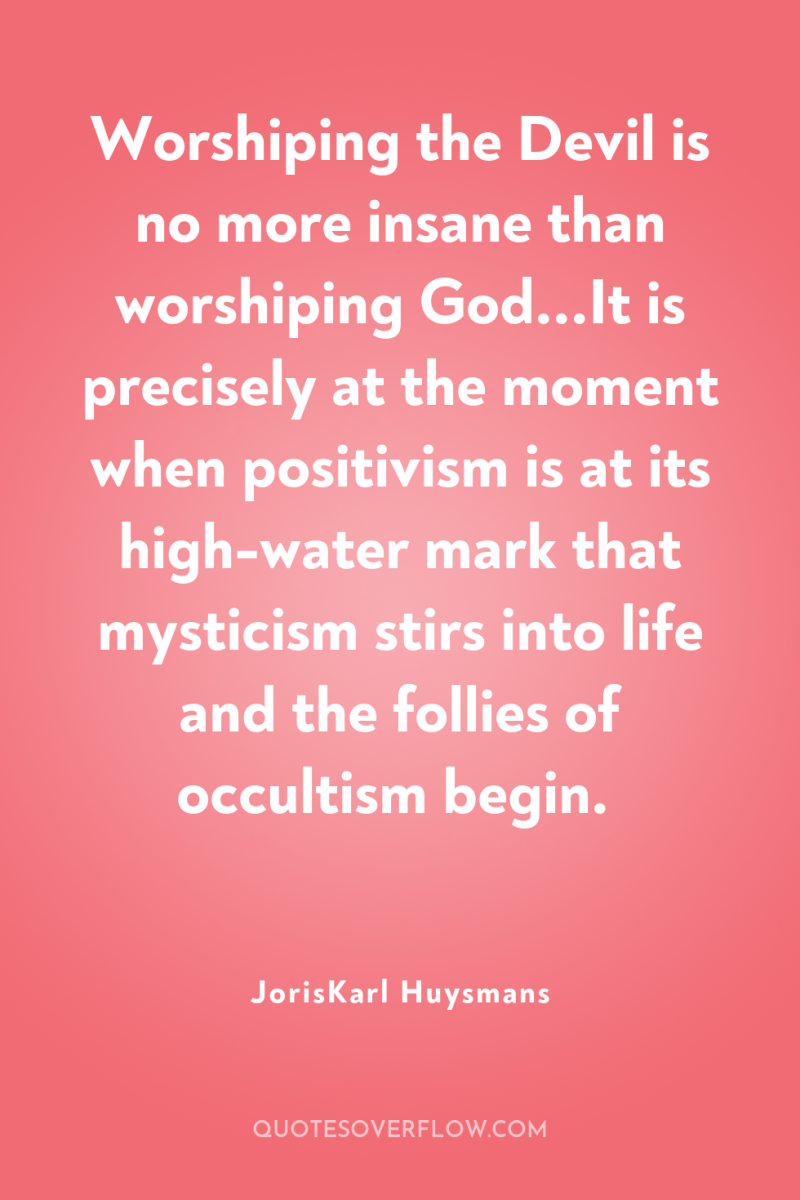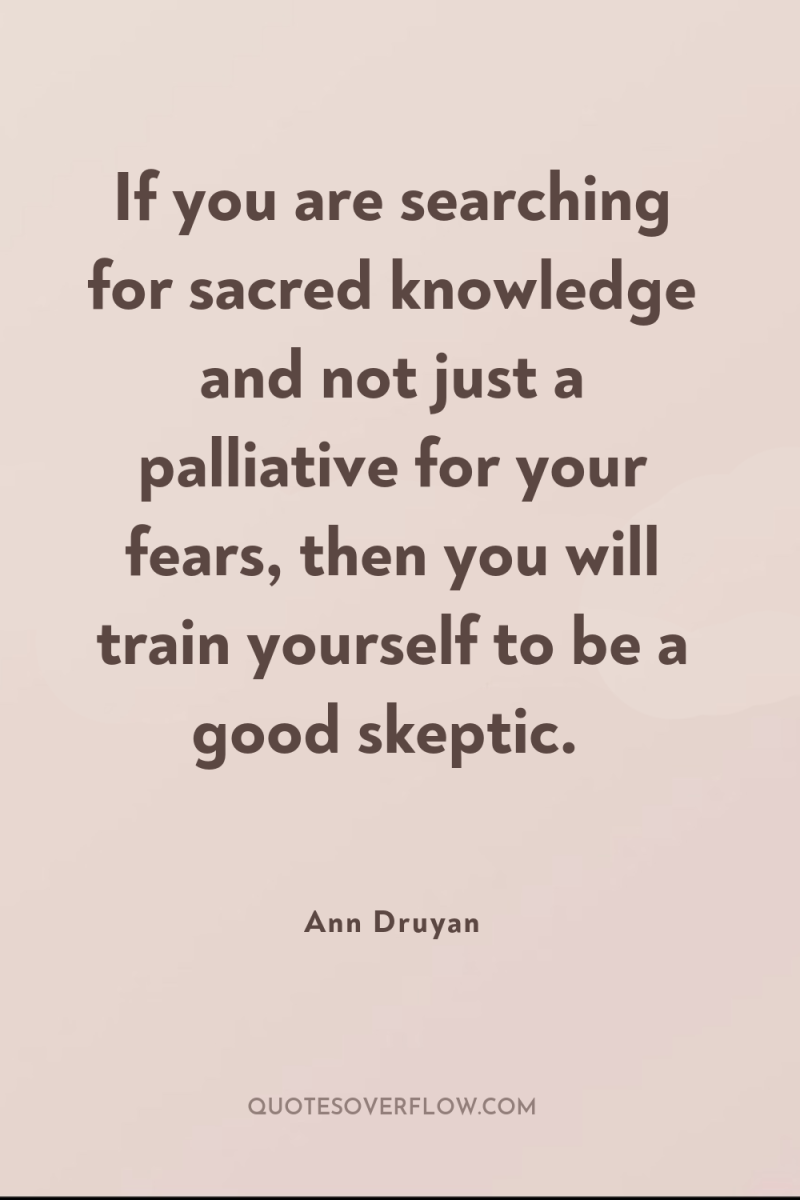1
Both [Quine and Feyerabend] want to revise a version of positivism. Quine started with the Vienna Circle, and Feyerabend with the Copenhagen school of quantum mechanics. Both the Circle and the school have been called children of Ernst Mach; if so, the philosophies of Feyerabend and Quine must be his grandchildren.Ian Hacking

2
Worshiping the Devil is no more insane than worshiping God...It is precisely at the moment when positivism is at its high-water mark that mysticism stirs into life and the follies of occultism begin.JorisKarl Huysmans
3
It is man's unique privilege, among all other organisms. By pursuing falsehood you will arrive at the truth!Fyodor Dostoyevsky

4
If you are searching for sacred knowledge and not just a palliative for your fears, then you will train yourself to be a good skeptic.Ann Druyan
5
Leaders gather scattered people with the positive influence of intimacy while misleaders scatter gathered people with the negative influence of intimidation.Israelmore Ayivor
6
Leaders don't fall in gutters of fear; only negative ideas flow in that canal. There, you will see filthy things like doubts and disbelief.Israelmore Ayivor
7
Optimism: things will go my way. Positivism: everything is perfect right here and now, whether I like it or not.Stefan Emunds
8
But what use is the unicorn to you if your intellect doesn't believe in it?Umberto Eco
9
I could doubt the value of my books as much as many do, except that, as a researcher and very curious person, I do read a lot too, and can clearly see the difference in value between what I do and what others do. I have no doubt that my books have much more value than nearly all others out there, and it wouldn't make sense for me to be an author if I couldn't see that, or if I saw the opposite, as I believe that, if we're not upgrading mankind, we're just making it lost and vulnerable to the claws of ignorance.Robin Sacredfire
10
Positivist man is a curious creature who dwells in the tiny island of light composed of what he finds scientifically "meaningful, " while the whole surrounding area in which ordinary men live from day to day and have their dealings with other men is consigned to the outer darkness of the "meaningless." Positivism has simply accepted the fractured being of modern man and erected a philosophy to intensify it. Existentialism, whether successfully or not, has attempted instead to gather all the elements of human reality into a total picture of man. Positivist man and Existentialist man are no doubt offspring of the same parent epoch, but, somewhat as Cain and Abel were, the brothers are divided unalterably by temperament and the initial choice they make of their own being.William Barrett
11
Joy, not sorrow. Laughter, not tears. Life, not death. Love, not blame.Lisa Schroeder
12
Hauriou, became a crown witness for us when he confirmed this connection in 1916, in the midst of WWI: “The revolution of 1789 had no other goal than absolute access to the writing of legal statutes and the systematic destruction of customary institutions. It resulted in a state of permanent revolution because the mobility of the writing of laws did not provide for the stability of certain customary institutions, because the forces of change were stronger than the forces of stability. Social and political life in France was completely emptied of institutions and was only able to provisionally maintain itself by sudden jolts spurred by the heightened morality.Carl Schmitt
13
The essence and value of the law lies in its stability and durability (...), in its “relative eternity.” Only then does the legislator’s self-limitation and the independence of the law-bound judge find an anchor. The experiences of the French Revolution showed how an unleashed pouvoir législatif could generate a legislative orgy.Carl Schmitt
14
The sacred formula of positivism: love as a principle, the order as a foundation, and progress as a goal.Auguste Comte